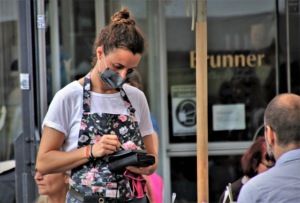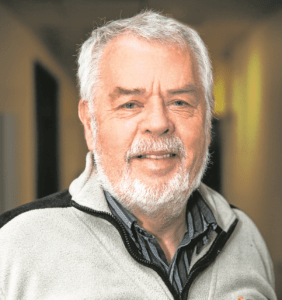Opinion
This Week’s Editorial: World’s longest wait for table
Ejvind Sandal
This article is more than 4 years old.

A slow return to normal (photo: Pixabay)
This week we readopted the habit of eating out. This time, though, the experience includes distancing, masks, reservations and Corona passes. Nevertheless, it is a giant step back to normal, which for months was a no-go.
Back to the new normal
Big shopping centres are back in business again, and vaccinations have relieved the elderly from fear and isolation. Flock immunity is in sight. Some hysteria concerning certain vaccination types aside, the coming summer will see the beaches and museums full again.
The pandemic is not over worldwide, but it will be under control and we will sit down and consider what we learned.
Distance learning in the public schools and further up the education ladder is here to stay. Businesses and institutions are reconsidering their need for office space, as IT has made it possible to perform despite the lockdown.
Business travel has been reduced to almost zero and will remain considerably reduced in the future, saving both time and money.
Proof politicians like sport
Politicians are daring to demand even more liberal opening measures, thus opposing a government that has reigned as an absolute powerhouse since March last year.
However, the country is not recovering – it was in good shape all the time. The economy was, and is, healthy. Unemployment is exceptionally low. So happily, we are marching on.
The political picture is still blurred. Harsh measures against foreigners are again a popular sport. Hardliners are tightening the conditions for obtaining Danish citizenship, although the regulations involving masks and handshakes will probably not be enforced for a while!
The repatriation of Syrian refugees who have been here for several years and are fully integrated should be reconsidered. They are assets, not liabilities. Stronger measures at petty crimes are also targeted against immigrants and their descendants.
And talking of sport, just like with professional football the politician transfer window has been wide open.
Venstre has lost former PM Lars Løkke Rasmussen to what may be his own new party. Britt Bager has joined Konservative, joining the earlier move by Marcus Knuth, meaning that the party is now bigger than Venstre in the polls.
Always the green agenda
The #MeToo movement has taken its toll and seems to be fading away, albeit with a mayor and party leader in its wake. Now we are chasing dirty jokes and foul language – not a big loss as the witchhunt element has calmed down.
The main political issues post-Corona are infrastructure. The government has just proposed an ambitious plan for the next decade in tune with its green agenda, which nobody ever stops advocating these days. Infrastructure always costs more than expected, but always pays off in the end – with the odd public transport exception.
The world seems to be in good shape. However, we need to address the migration problem at large. We cannot, given our strong welfare foundation, morally defend the way we ignore desperate people who are prepared to risk everything for a better life.

About
Ejvind Sandal
Copenhagen Post co-owner Ejvind Sandal has never been afraid to voice his opinion. In 1997 he was fired after a ten-year stint as the chief executive of Politiken for daring to suggest the newspaper merged with Jyllands-Posten. He then joined the J-P board in 2001, finally departing in 2003, the very year it merged with Politiken. He is also a former chairman of the football club Brøndby IF (2000-05) where he memorably refused to give Michael Laudrup a new contract prior to his hasty departure. A practising lawyer until 2014, Sandal is also the former chairman of Vestas Wind Systems and Axcel Industriinvestor. He has been the owner of the Copenhagen Post since 2000.










































